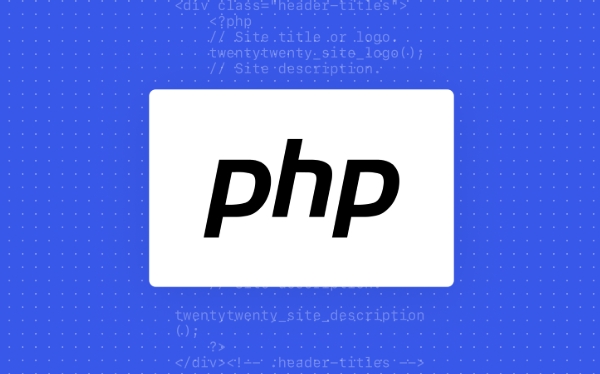REST與GraphQL:您什麼時候選擇一個PHP API?
Choose REST for simplicity, caching, and stable data structures; choose GraphQL for flexible, efficient data fetching with complex relationships. 1. Use REST when you need predictability, HTTP caching, third-party compatibility, and your data is hierarchical. 2. Use GraphQL when frontend teams require custom data shapes, data is deeply interconnected, clients have varying needs, and rapid iteration is crucial. 3. In PHP, REST is faster to implement with Laravel or Symfony, while GraphQL requires more setup using webonyx/graphql-php. 4. REST offers better out-of-the-box tooling and monitoring; GraphQL demands investment in schema design and query optimization. 5. Teams can start with REST and add GraphQL for specific use cases, or even support both, depending on application complexity and team priorities. The decision hinges on balancing performance, flexibility, and development resources.

Choosing between REST and GraphQL for a PHP API depends on your application’s needs, team experience, and performance requirements. Neither is universally better — each has trade-offs. Here's when you might pick one over the other.

Choose REST when…
REST is a mature, well-understood standard that works well in many common scenarios.
-
You need simplicity and predictability
REST APIs are straightforward to design and consume. With clear endpoints (e.g.,/api/users,/api/posts), HTTP methods (GET, POST, etc.), and status codes, they’re easy to debug and document. This makes them ideal for small to medium-sized applications or teams new to API development.
Caching is important
REST leverages HTTP caching mechanisms out of the box. You can use ETags,Cache-Control, and CDNs effectively. If your app serves a lot of public or semi-static data (like product listings or blog posts), REST gives you free performance wins.-
You’re integrating with third-party services or legacy systems
Most external tools, libraries, and platforms expect RESTful patterns. Authentication (like OAuth), rate limiting, and monitoring are all well-supported in REST ecosystems.
Your data structure is stable and hierarchical
If your data naturally fits into resources (users, orders, products), and clients usually need the same set of fields, REST works well. You avoid the overhead of building a query engine.
In PHP, frameworks like Laravel or Symfony make building REST APIs fast and clean with built-in routing, middleware, and Eloquent/Doctrine support.
Choose GraphQL when…
GraphQL shines when clients need flexibility and efficiency in data fetching.
Frontend teams need control over data shape
If your frontend (React, Vue, mobile apps) requires different data structures across views or devices, GraphQL lets clients request only what they need. No more over-fetching (getting 20 fields when you need 3) or under-fetching (making 5 round trips to get related data).You have complex, interconnected data
When your data model involves deep relationships (e.g., users → posts → comments → authors), GraphQL’s nested queries reduce the number of requests. A single query can fetch everything needed for a view.Multiple clients with varying needs
If you serve web, mobile, and third-party apps from the same API, GraphQL avoids creating multiple REST endpoints or versioning nightmares. One schema can adapt to all consumers.You want faster iteration on the frontend
With GraphQL, frontend devs can add new fields without waiting for backend changes (as long as the data exists in the schema). This speeds up development when requirements evolve quickly.
In PHP, you can use libraries like webonyx/graphql-php to implement GraphQL. It’s mature and integrates well with Laravel or Symfony, but requires more setup than a basic REST endpoint.
Practical considerations for PHP
Performance
REST is usually faster to implement and lighter on the server. GraphQL requires parsing queries, validating against a schema, and resolving nested fields — which can add overhead. N+1 query problems are common unless you implement batching (e.g., with DataLoader patterns).Tooling and learning curve
REST tools (Postman, Swagger, middleware) are widely known. GraphQL needs more investment: schema design, introspection, query validation, and debugging tools like GraphiQL. Your team needs to learn GraphQL concepts (resolvers, types, directives).Monitoring and security
REST endpoints are easier to monitor, rate-limit, and secure individually. GraphQL’s single endpoint makes this harder — a single query can be expensive, so you need query cost analysis or depth limiting.
Bottom line
Use REST if you want simplicity, strong caching, and predictable performance — especially for CRUD apps or public APIs.
Use GraphQL if your clients need flexible, efficient data fetching and you’re willing to invest in schema design and query optimization.
Many teams start with REST and introduce GraphQL later for specific use cases (e.g., admin dashboards or mobile apps). In PHP, both are viable — the choice comes down to your app’s complexity and team priorities.
Basically, it’s not an either/or forever — sometimes you can even offer both.
以上是REST與GraphQL:您什麼時候選擇一個PHP API?的詳細內容。更多資訊請關注PHP中文網其他相關文章!

熱AI工具

Undress AI Tool
免費脫衣圖片

Undresser.AI Undress
人工智慧驅動的應用程序,用於創建逼真的裸體照片

AI Clothes Remover
用於從照片中去除衣服的線上人工智慧工具。

Clothoff.io
AI脫衣器

Video Face Swap
使用我們完全免費的人工智慧換臉工具,輕鬆在任何影片中換臉!

熱門文章

熱工具

記事本++7.3.1
好用且免費的程式碼編輯器

SublimeText3漢化版
中文版,非常好用

禪工作室 13.0.1
強大的PHP整合開發環境

Dreamweaver CS6
視覺化網頁開發工具

SublimeText3 Mac版
神級程式碼編輯軟體(SublimeText3)
 PHP變量範圍解釋了
Jul 17, 2025 am 04:16 AM
PHP變量範圍解釋了
Jul 17, 2025 am 04:16 AM
PHP變量作用域常見問題及解決方法包括:1.函數內部無法訪問全局變量,需使用global關鍵字或參數傳入;2.靜態變量用static聲明,只初始化一次並在多次調用間保持值;3.超全局變量如$_GET、$_POST可在任何作用域直接使用,但需注意安全過濾;4.匿名函數需通過use關鍵字引入父作用域變量,修改外部變量則需傳遞引用。掌握這些規則有助於避免錯誤並提升代碼穩定性。
 在PHP中評論代碼
Jul 18, 2025 am 04:57 AM
在PHP中評論代碼
Jul 18, 2025 am 04:57 AM
PHP註釋代碼常用方法有三種:1.單行註釋用//或#屏蔽一行代碼,推薦使用//;2.多行註釋用/.../包裹代碼塊,不可嵌套但可跨行;3.組合技巧註釋如用/if(){}/控制邏輯塊,或配合編輯器快捷鍵提升效率,使用時需注意閉合符號和避免嵌套。
 撰寫PHP評論的提示
Jul 18, 2025 am 04:51 AM
撰寫PHP評論的提示
Jul 18, 2025 am 04:51 AM
寫好PHP註釋的關鍵在於明確目的與規範,註釋應解釋“為什麼”而非“做了什麼”,避免冗餘或過於簡單。 1.使用統一格式,如docblock(/*/)用於類、方法說明,提升可讀性與工具兼容性;2.強調邏輯背後的原因,如說明為何需手動輸出JS跳轉;3.在復雜代碼前添加總覽性說明,分步驟描述流程,幫助理解整體思路;4.合理使用TODO和FIXME標記待辦事項與問題,便於後續追踪與協作。好的註釋能降低溝通成本,提升代碼維護效率。
 快速PHP安裝教程
Jul 18, 2025 am 04:52 AM
快速PHP安裝教程
Jul 18, 2025 am 04:52 AM
ToinstallPHPquickly,useXAMPPonWindowsorHomebrewonmacOS.1.OnWindows,downloadandinstallXAMPP,selectcomponents,startApache,andplacefilesinhtdocs.2.Alternatively,manuallyinstallPHPfromphp.netandsetupaserverlikeApache.3.OnmacOS,installHomebrew,thenrun'bre
 學習PHP:初學者指南
Jul 18, 2025 am 04:54 AM
學習PHP:初學者指南
Jul 18, 2025 am 04:54 AM
易於效率,啟動啟動tingupalocalserverenverenvirestoolslikexamppandacodeeditorlikevscode.1)installxamppforapache,mysql,andphp.2)uscodeeditorforsyntaxssupport.3)
 如何用PHP搭建社交分享功能 PHP分享接口集成實戰
Jul 25, 2025 pm 08:51 PM
如何用PHP搭建社交分享功能 PHP分享接口集成實戰
Jul 25, 2025 pm 08:51 PM
在PHP中搭建社交分享功能的核心方法是通過動態生成符合各平台要求的分享鏈接。 1.首先獲取當前頁面或指定的URL及文章信息;2.使用urlencode對參數進行編碼;3.根據各平台協議拼接生成分享鏈接;4.在前端展示鏈接供用戶點擊分享;5.動態生成頁面OG標籤優化分享內容展示;6.務必對用戶輸入進行轉義以防止XSS攻擊。該方法無需複雜認證,維護成本低,適用於大多數內容分享需求。
 如何用PHP結合AI實現文本糾錯 PHP語法檢測與優化
Jul 25, 2025 pm 08:57 PM
如何用PHP結合AI實現文本糾錯 PHP語法檢測與優化
Jul 25, 2025 pm 08:57 PM
要實現PHP結合AI進行文本糾錯與語法優化,需按以下步驟操作:1.選擇適合的AI模型或API,如百度、騰訊API或開源NLP庫;2.通過PHP的curl或Guzzle調用API並處理返回結果;3.在應用中展示糾錯信息並允許用戶選擇是否採納;4.使用php-l和PHP_CodeSniffer進行語法檢測與代碼優化;5.持續收集反饋並更新模型或規則以提升效果。選擇AIAPI時應重點評估準確率、響應速度、價格及對PHP的支持。代碼優化應遵循PSR規範、合理使用緩存、避免循環查詢、定期審查代碼,並藉助X
 PHP調用AI智能語音助手 PHP語音交互系統搭建
Jul 25, 2025 pm 08:45 PM
PHP調用AI智能語音助手 PHP語音交互系統搭建
Jul 25, 2025 pm 08:45 PM
用戶語音輸入通過前端JavaScript的MediaRecorderAPI捕獲並發送至PHP後端;2.PHP將音頻保存為臨時文件後調用STTAPI(如Google或百度語音識別)轉換為文本;3.PHP將文本發送至AI服務(如OpenAIGPT)獲取智能回复;4.PHP再調用TTSAPI(如百度或Google語音合成)將回復轉為語音文件;5.PHP將語音文件流式返回前端播放,完成交互。整個流程由PHP主導數據流轉與錯誤處理,確保各環節無縫銜接。









